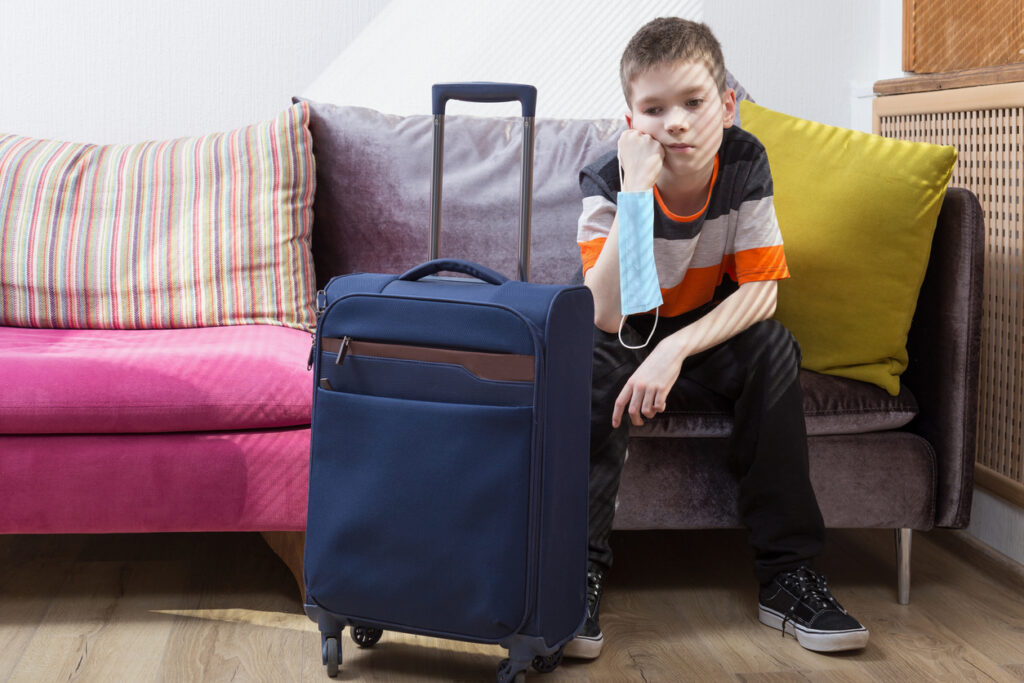As a parent, you may be faced with an impending move to a new house. Or perhaps you’ve already moved. You may have made the decision to move because of finances, career, schools, location, family, or other factors.
Now you wonder about the effect moving can have on adolescents and teens. Perhaps you notice some changes in your teen, or maybe there are no changes. In any case, it’s still valuable to understand the effects of moving to a new home.
Because the fact is that moving is traumatic.
And not just for adolescents and teens.
According to the University Hospital System of Northeastern Ohio, moving is one of the top five traumatic events in life. Moving is the third most stressful event, after the death of a loved one and divorce. The stress of moving is often exacerbated in adolescents and teens, who may not have the coping skills to process their feelings in a healthy way.
Why Moving is Traumatic

Home is often a familiar, secure place, so teens who are uprooted from their home experience instability. For this reason, they experience moving as a loss, similar to the loss of a parent or loved one. Let’s learn why:
In your old house, you and your family members knew the layout like the back of your hand. You could probably get to the bathroom or down to the kitchen for a drink of water even if it was pitch black dark, in the middle of the night. You moved on autopilot. Even backing out of the driveway and turning onto your block was second nature. Your brain knew your house inside out. The same goes for your old street, the local supermarket you shopped in all the time, and the route you took from your house to school. You learned all these things a long time ago. And now it’s all gone. You have to relearn everything from scratch.
New house, new layout – sure, no problem. But that’s not all you have to learn. There are new places for everything: your clothes, your kitchen utensils, your toiletries, everything. A new way to get to school. A new supermarket – new aisles, new cashiers, the works. New routines in almost every aspect of your daily life. All of this means a steep learning curve. In the move, your brain lost its working map of your life, and you have to start from square one and make a new one. And it’s hard. That loss of familiarity is what makes moving so stressful and traumatic.
Moving and Mental Health Issues
And just like other significant life stressors, the trauma of moving can cause a host of mental health and behavioral issues, including depression, anxiety, and post-traumatic stress disorder. Research shows that residential mobility can cause a variety of other problems during adolescence, including lower academic performance, deviant behavior, problematic friendships, and weak school engagement.
There are additional losses involved when an adolescent switches schools: the loss of old friends, classmates, teachers, and a familiar school building. Combined with the loss of the family home, it all may be too much for young teens to bear. A study called “Mobility and School Functioning in the Early Grades,” found that students who move often tend to have harder adjustments and more frequent behavioral problems than students who don’t move often.
Adolescents in elementary and middle schools seem to be hit the hardest by these effects, and introverts experience the worst symptoms. A study published in the Journal of Personality and Social Psychology showed frequent moves during childhood were associated with lower levels of well-being during adulthood. On the other hand, more extroverted children tended to fare better.
Children with preexisting mental health issues may experience exacerbated symptoms due to the stress of the new move, as well. An adolescent who struggles with depression, for example, has an increased chance of a depressive episode during or after the move, and teen who battles anxiety may experience more frequent panic attacks.
Therefore, if you moved recently, and you notice your teenager or young child is having a hard time, be empathetic and supportive – especially if they have a mental health disorder. Moving can be traumatic and have long-lasting emotional effects: that’s what the research says.































































